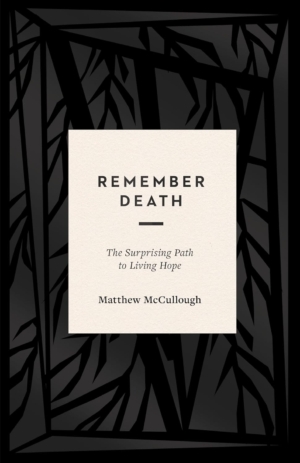While the problems of the evangelical Purity Movement have been well documented, one of its biggest errors was promoting a non-theological account of modesty focused almost exclusively on behaviors. With few exceptions, modesty was largely cast as the responsibility of women to . . . Continue reading →
Christian Life
Heidelcast: Superfriends Saturday: Is The Church A Household Of Households?
It’s a Superfriends Saturday on the Heidelcast! Continue reading →
Gathercole: Did Paul Really Expect Christ To Return In His Lifetime?
The mystery in 1 Corinthians 15.51–52 has long been a standard prooftext for the idea that Paul envisaged the parousia happening in his lifetime.1 On this view of the passage, Paul assumes his survival and that of a portion of his generation until . . . Continue reading →
Heidelminicast: Is It a Sin If I Don’t Read The Bible Every Day?
In this episode Dr Clark talks about reading the Bible. Continue reading →
Catholic-Protestant Differences (Part 3)
Catholicism teaches that there is a season of purification after death that prepares one for the full benefits of heavenly life: “The Catechism of the Catholic Church defines purgatory as a ‘purification, so as to achieve the holiness necessary to enter the joy of heaven,’ which is experienced by those ‘who die in God’s grace and friendship, but still imperfectly purified’ (CCC 1030). Continue reading →
Burying Our Dead In Faith: A Biblical Case Against Cremation
Since the earliest recorded history of the church, God’s people have buried their dead in certain and faithful expectation of the resurrection from the grave. Very recently, however, some Christians have opted to have their own bodies incinerated rather than buried. There . . . Continue reading →
Christian Camp Litigates For Religious Liberty
For more than 75 years, Camp IdRaHaJe has welcomed children each summer to hear the Gospel, build character, and grow in faith. Nestled in Bailey, Colorado, the camp’s name comes from a simple hymn lyric: “I’d rather have Jesus.” In 2024, the . . . Continue reading →
Heidelcast: Superfriends Saturday: Anointing With Oil | Is the Word “Psalms” Inclusive Of Non-Inspired Songs?
It’s a Superfriends Saturday on the Heidelcast! Continue reading →
Young Ministers With Older Elders
As I lifted my hands, scanned the room, and gave my first benediction, the realization that I really was a pastor now hit me like a ton of bricks. From now on it was my job to “shepherd the flock of God… . . . Continue reading →
Second Circuit Rules For Christian School
Mid Vermont Christian School forfeited a girls’ playoff basketball game to avoid playing a team with a transgender athlete. The school believes that forcing girls to compete against biological males would affirm that those males are females, in violation of its religious . . . Continue reading →
Review: Remember Death: The Surprising Path To Living Hope By Matthew McCullough
We are all going to die! It is not just a line from some movie script. It is a basic truth: No person will escape death. Unless Christ returns first, you will die, I will die, and everyone else will die as . . . Continue reading →
Whose Kingdom, Which Power?
The pressure is immense. Then, we open social media and see absolutely no uniformity of agreement on how this should be done. There is pastoral disarray, it seems. Some of the most popular social media pastors are calling us to war, yes, . . . Continue reading →
Catholic-Protestant Differences (Part 2)
Many/most expressions of the visible church on earth have some central administrative office, an office that serves the various particular churches administratively. Rome goes beyond this, however, and its pope is not merely an administrative official; he has authority to settle matters of faith and practice . . . Continue reading →
Nihilism And The American Middle
In recent years, a new form of terror has emerged: decentralized, digitally driven violence organized not around coherent ideologies but around memes, fantasies, and nihilistic impulses. The perpetrators of this low-grade terror campaign do not belong to hierarchical organizations or pursue concrete . . . Continue reading →
The Tender Love A Father Has: The Christian’s Comfort, Even In Death (Part 7)
We have been considering lately how the resurrection gives us hope right now and in the face of death. The resurrection, however, also affords the Christian a glorious hope for the future, and so today we want to give some attention to . . . Continue reading →
We’re Not The First Christians To Live In A Sexualized Culture
We’re not the first Christians to live in a highly sexualized culture. In fact, many of the first New Testament Christians lived in exactly that kind of culture. Over and over again the apostles warn against sexual immorality. They had to do . . . Continue reading →
Heidelcast: Superfriends Saturday: Non-ordained Service in the Church
It’s a Superfriends Saturday on the Heidelcast! Continue reading →
Calvin On The Judgment Of Charity
It may be asked, how could this be found out, for the election of God is hid, and cannot be known without the special revelation of the Spirit; and as every one is made sure of his own election by the testimony . . . Continue reading →
Catholic-Protestant Differences (Part 1)
I began my teaching career at Gordon-Conwell Theological Seminary. Most of my students elected to attend that seminary; it was not the denominational seminary of any denomination, so choosing to attend there was a choice not to attend a particular denomination’s favored/sponsored . . . Continue reading →
Yes, We Forgive Our Enemies
It is well known that, at Charlie Kirk’s memorial, his widow, Erika, forgave the man who is charged with his murder. This has reignited a debate that I first became aware of perhaps 15 years ago. There are two sides to this . . . Continue reading →





